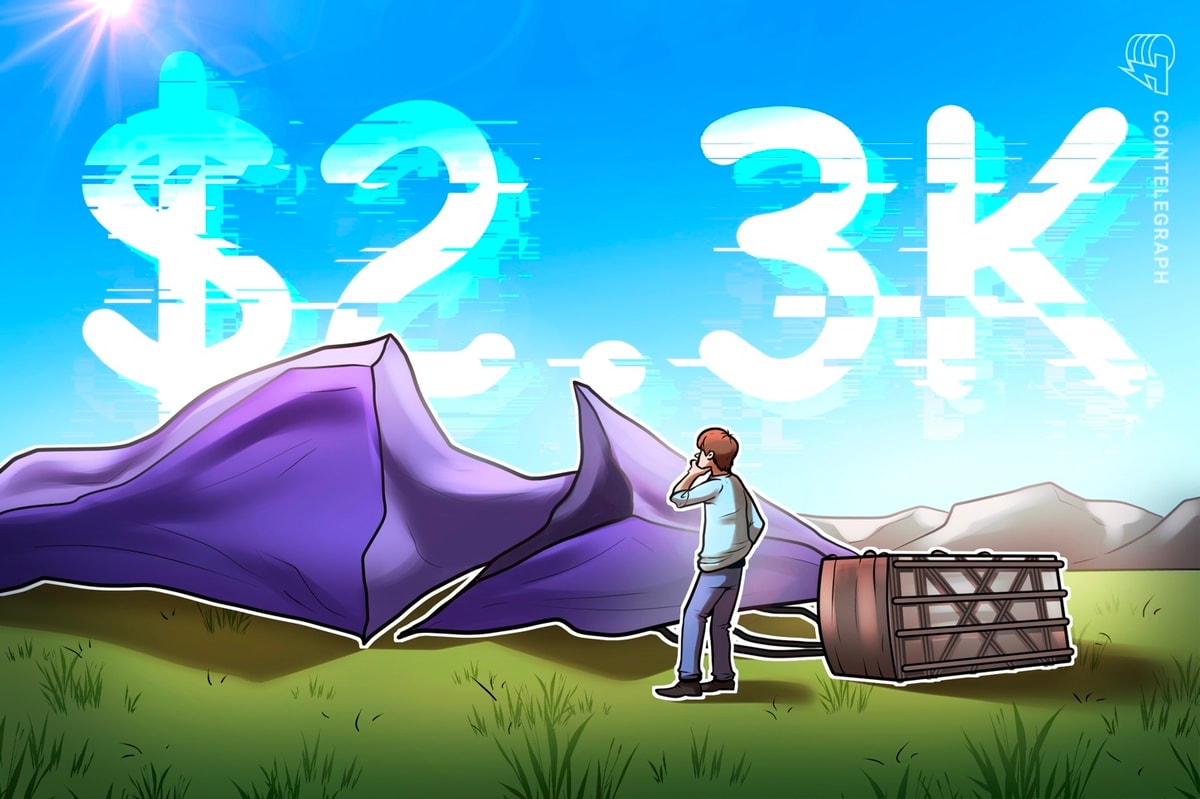Ether’s price faced resistance after hitting the $2,768 level on Oct. 21. A number of factors capped the rally, including increasing supply on exchanges, reduced network activity and weakening technicals.
ETH Coinbase index signals potential sell-off
Ether’s (ETH) 6.5% drop from the local high at $2,768 saw the ETH Coinbase Premium Index drop below its 14-day simple moving average (SMA) on Oct. 21, hinting at a potential sell-off in the near future.
ETH Coinbase Premium Index, which measures the gap between Ether’s price on Coinbase Pro and Binance, is used as an indicator of US investor demand compared to the rest of the world.
The chart below shows that ETH price corrections occurred when the Coinbase Premium Index fell below its 14-day SMA.
Currently, the indicator is at -0.075, and the 14-day SMA is at -0.040, indicating “that sellers have a stronger hand in the US market,” said CrypptoQuant.
“ETH Coinbase Premium Index crosses below its SMA14, this signals increasing US selling pressure, potentially leading to price declines.”
Ether’s Coinbase Premium Index. Source: CryptoQuant
Increasing ETH supply on exchanges
Another argument for the bears is the increasing ETH supply on exchanges. According to additional data from CryptoQuant, Ether balances on exchanges reached a four-week high of 15.8 million ETH on Oct. 21.
ETH reserve on exchanges. Source: CryptoQuant
The total balance between inflows and outflows among centralized exchange wallets shows a sharp increase between Oct. 15 and Oct. 20, when deposits to the trading platforms began to surge.
An increasing ETH supply on exchanges simply means investors could be sending their tokens to exchanges from self-custody wallets, indicating an intention to sell.
Ethereum’s decreasing TVL
Ethereum’s total value locked (TVL) has been decreasing since mid-June, as indicated in the chart below from Defilama.
The TVL on the layer-1 network fell from a year-to-date peak of $66 billion on June 3, dropping 57% to $42.3 billion on Aug. 5, before rising to the current level of $48 billion.
TVL on Ethereum. Source: DefiLlama
Additional data from DefiLlama shows that Ethereum’s TVL has decreased by over 2% over the last 30 days, underperforming other top layer-1 protocols such as Solana, which has seen a 22% increase in TVL over the same period.
Top blockchains: percentage change in TVL. Source: DefiLlama
The rising TVL reflects traders’ interest in Ethereum’s DeFi ecosystem and shows the network’s inability to attract new users because of its relatively higher transaction costs, particularly those seeking to launch new projects.
Data from Etherscan shows that Ethereum’s fees remain consistently high, at an average of 11.492 gwei ($0.62). This is considerably higher than transaction fees on Solana, which currently stand at an average of 0.000091 SOL (~$0.015).
Related: Ethereum blob fees soar: What does it mean for L2s?
Ether’s bearish pattern hints at 10% drop ahead
ETH price action between Oct. 10 and Oct. 23 has led to the appearance of an inverted V-shaped pattern on the daily chart. This follows an initial climb that saw the Ether price surge 19% from $2,327 in a sharp recovery that was stopped by buyer congestion around the $2,800 psychological level.
Bears booked profits on this rally, resulting in a sharp correction to the current levels. As the price seeks to complete the inverted v-shaped pattern, it could drop a further 9.7% from the current price toward the pattern’s neckline around the $2,300 demand zone.
Meanwhile, the relative strength index (RSI) is in a downtrend, having decreased from 67 to 52 over the last three days, suggesting that market conditions had flipped in favor of price downside.
ETH/USD Daily Chart. Source: TradingView
On the upside, the key levels to watch are the 200–day EMA at $2,660 and, later, the local high at $2,768.
This article does not contain investment advice or recommendations. Every investment and trading move involves risk, and readers should conduct their own research when making a decision.










